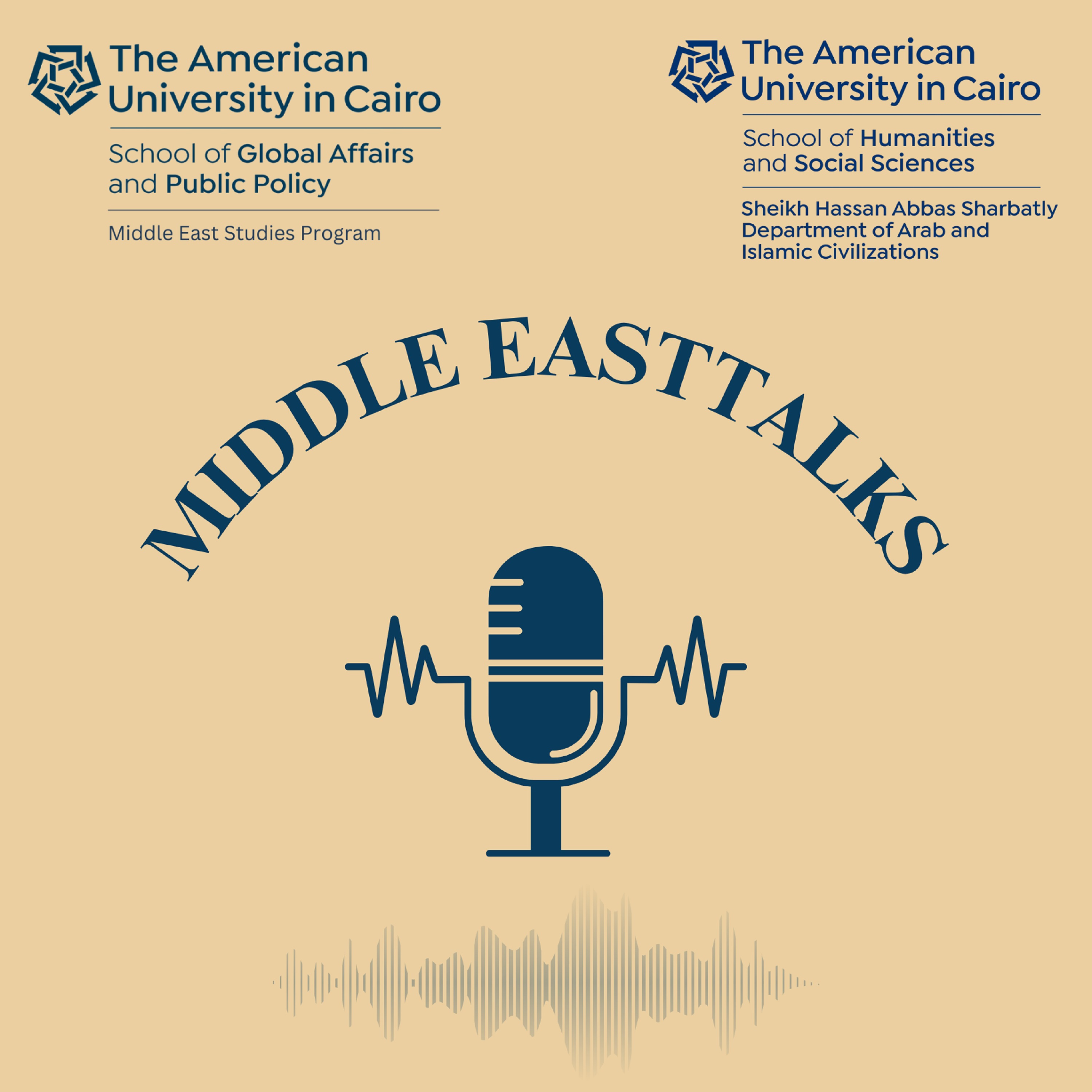Middle East Talks

Middle East Talks
Podcast Description
Middle East Talks is a podcast produced by the American University in Cairo’s Middle East Studies Program in collaboration with the Arab and Islamic Civilizations Department. The podcast aims to foster a better understanding of the Middle East among a wider audience by exploring new and contemporary research in the region’s history, politics and culture. In each episode, a scholar is invited to discuss their work in a fashion that is accessible and engaging to listeners who are curious about the Middle East.
Podcast Insights
Content Themes
The podcast explores a variety of themes including historical events, political dynamics, and cultural studies, with specific episodes like the premiere discussing the 1787 explosion in Cairo, providing insights into the social and economic conditions of 18th-century Egypt, highlighting contemporary scholarship and its relevance.

Middle East Talks is a podcast produced by the American University in Cairo’s Middle East Studies Program in collaboration with the Arab and Islamic Civilizations Department. The podcast aims to foster a better understanding of the Middle East among a wider audience by exploring new and contemporary research in the region’s history, politics and culture. In each episode, a scholar is invited to discuss their work in a fashion that is accessible and engaging to listeners who are curious about the Middle East.
The British occupation authorities drafted the first law regulating sex work in Egypt, merely 6 weeks after British forces defeated the Egyptian army and occupied the country in 1882. The era of regulated sex work would last until 1951 when it finally became criminalized – just a few years before the end of British occupation. But the story of “Sex Work in Colonial Egypt” – the title of the book whose author is our guest today – is not merely a story about imperial and nationalist approaches towards prostitution. Francesca Biancani tells a much more fascinating and complex story about modernity, Egypt’s place in the global economy, migration, urbanization, gender and labor politics, during this era.
Guest: Francesca Biancani, Associate Professor, Department of Political and Social Sciences, Bologna University
Interviewer: Khaled Ezzelarab, Associate Professor of Practice, Journalism and Mass Communication Department, and Director of the Middle East Studies Program, American University in Cairo
Researcher: Wafaa ElSaid
Book: Biancani, Francesca. Sex Work in Colonial Egypt: Women, Modernity and the Global Economy. Edited by Francesca Biancani. vol. 72., I.B. Tauris, 2018.
Intro Music: Festival of Eid Joy by Adiiswanto, licensed via Pixabay Music
Get in touch via email [email protected]
Disclaimer: Views expressed in this podcast series are those of participants and do not reflect the opinions of The American University in Cairo. Copyright is held by the appropriate AUC school, office or department unless otherwise stated. Requests for permission to quote or use any content should be addressed to the appropriate AUC school, office or department directly.

Disclaimer
This podcast’s information is provided for general reference and was obtained from publicly accessible sources. The Podcast Collaborative neither produces nor verifies the content, accuracy, or suitability of this podcast. Views and opinions belong solely to the podcast creators and guests.
For a complete disclaimer, please see our Full Disclaimer on the archive page. The Podcast Collaborative bears no responsibility for the podcast’s themes, language, or overall content. Listener discretion is advised. Read our Terms of Use and Privacy Policy for more details.